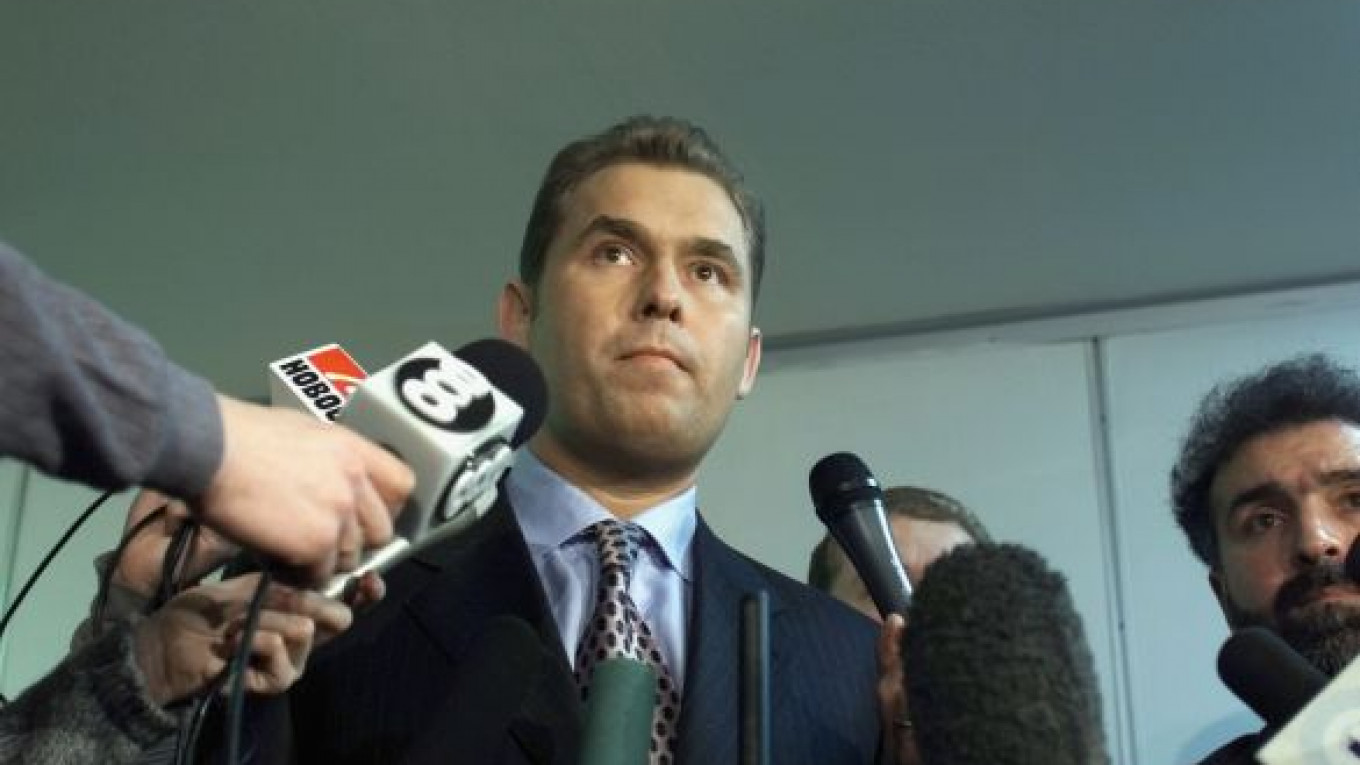The State Duma passed a bill to ban U.S. adoptions of Russian children in a 420-7 vote Friday, the legislature’s last session of the year.
The bill, widely seen as Moscow’s reaction to the U.S. Magnitsky Act, which seeks to impose sanctions on Russian officials implicated in human rights abuses, still needs approval by the Federation Council and the president.
“More than 150 lawmakers signed the bill when it was submitted to the Duma, which gives serious grounds to assume that it’ll be supported by the Federation Council,” the council’s first vice speaker, Alexander Torshin, said Friday in comments carried by Interfax. He added that his legislature’s vote would likely be on Wednesday.
President Vladimir Putin last week, however, hinted that he would not be able to sign the bill due to obligations in a U.S.-Russia adoption agreement that came into effect on Nov. 1. If one side decides to pull out of the agreement, it must notify the other side a year in advance.
“It would be more productive to work on implementation of the adoption agreement, which has been in effect for seven weeks only,” U.S. Ambassador Michael McFaul wrote on Twitter.
“We are extremely concerned by the bill, which makes the fate of orphaned children depend on politics,” the U.S. Embassy said in a statement on Friday.
A petition proposed by the newspaper Novaya Gazeta and signed by more than 100,000 people was submitted to the Duma on Friday but will be considered only after Jan. 1, when the measure is expected to go into effect if approved by Putin.
“We have heard the opinion of 100,000 people. The petition will be passed to a dedicated committee. It will be reviewed after New Year’s. We can’t violate routine procedures now,” Duma Deputy Speaker Sergei Zheleznyak said Friday in comments carried by Interfax.
A similar petition with more than 38,000 signatures as of Sunday evening had been posted on the U.S. White House’s website, well past the 25,000-signature threshold to be considered by President Barack Obama’s administration. The petition sought to impose sanctions on Russian lawmakers who passed the adoption ban.
But the adoption bill’s supporters have been assured that it would be approved in any case. Children’s ombudsman Pavel Astakhov wrote on his Twitter account that despite the agreement’s obligations, Russia would cancel it on Jan. 1.
“What has more power, state legislation or international agreement? Obviously, the former,” he told The Moscow Times by telephone on Friday. “That is why when the law is passed, it will automatically cancel the agreement. International legislation makes it possible to quit an agreement unilaterally.”
“The agreement between the U.S. and Russia didn’t give American families the right to adopt Russian children. That opportunity is provided by the 1989 UN Convention on the Rights of the Child, and it has more power than national legislation,” Olga Benetskaya, a lawyer at Muranov, Chernyakov and Partners, told The Moscow Times in e-mailed comments.
“In addition, the right for international adoption is provided by the Family Code; all other bills on adoption must not contradict the code, including the bill that aims to ban U.S. adoptions,” she said.
Deputy Foreign Minister Gennady Gatilov stated, however, that the U.S. adoption ban would not affect Russian membership in the UN Convention on the Rights of the Child, Interfax reported Friday.
He also said the UN convention emphasized that international adoptions must be regarded as an exceptional practice.
The bill’s opponents are concerned about those children who are now in the process of international adoption.
Mikhail Prokhorov, leader of the Civil Platform party, told reporters on Friday that his party would give $50,000 to every family adopting children who might suffer from the bill. He said 46 such children were eligible for the benefits.
Related articles:
A Message from The Moscow Times:
Dear readers,
We are facing unprecedented challenges. Russia's Prosecutor General's Office has designated The Moscow Times as an "undesirable" organization, criminalizing our work and putting our staff at risk of prosecution. This follows our earlier unjust labeling as a "foreign agent."
These actions are direct attempts to silence independent journalism in Russia. The authorities claim our work "discredits the decisions of the Russian leadership." We see things differently: we strive to provide accurate, unbiased reporting on Russia.
We, the journalists of The Moscow Times, refuse to be silenced. But to continue our work, we need your help.
Your support, no matter how small, makes a world of difference. If you can, please support us monthly starting from just $2. It's quick to set up, and every contribution makes a significant impact.
By supporting The Moscow Times, you're defending open, independent journalism in the face of repression. Thank you for standing with us.
Remind me later.






